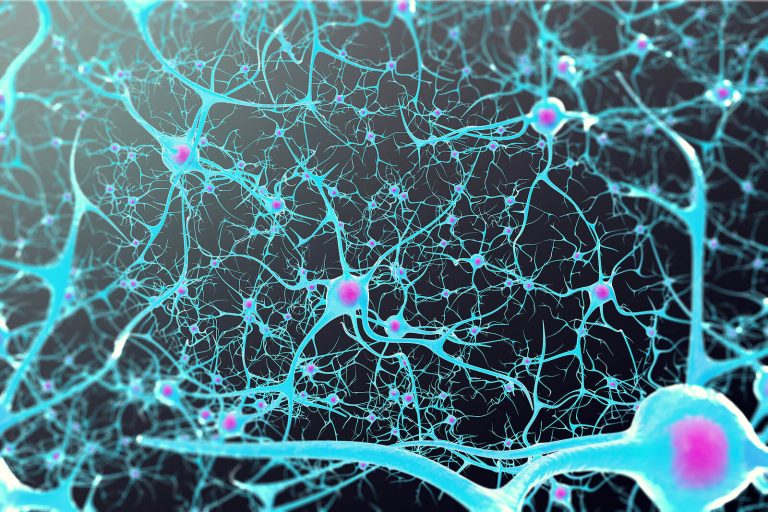Childhood Trauma and Neurofeedback: Rewiring the Brain for Emotional Well-being

Many individuals live with the long-term consequences of childhood trauma. The effects of early traumatic experiences can leave an imprint on the brain, influencing emotions, behaviors, and even physical health well into adulthood. Childhood trauma may lead to chronic anxiety, depression, difficulties in relationships, and persistent stress. Fortunately, there are several therapeutic options available to assist those who have experienced childhood trauma in their healing journey. One promising approach is neurofeedback, a non-invasive therapy that helps the brain regulate itself and process trauma more effectively. In this blog, we will explore the impact of childhood trauma on the brain, how neurofeedback works, its benefits, and how it facilitates healing.
Understanding Childhood Trauma and Its Impact on the Brain

The amygdala, often referred to as the brain’s fear center, becomes hyperactive in individuals with unresolved trauma, resulting in an exaggerated stress response. The prefrontal cortex, responsible for logical thinking and impulse control, may become underactive, making emotional regulation more difficult. The hippocampus, which plays a critical role in processing and storing memories, can also be affected, leading to fragmented or distorted recollections of traumatic events. Even if a person does not consciously remember traumatic events, the body retains those experiences.
Traditional therapeutic approaches, such as talk therapy and cognitive-behavioral therapy (CBT), primarily focus on the conscious processing of traumatic memories. However, since trauma is often stored in implicit memory, verbal processing alone may not be sufficient for deep healing. This is where neurofeedback becomes a powerful tool, directly addressing the brain’s dysregulation and promoting recovery.
What Is Neurofeedback?
Neurofeedback is a type of biofeedback that trains the brain to function more efficiently. Using real-time monitoring of brain activity through EEG (electroencephalogram) technology, neurofeedback helps individuals learn how to regulate their brain waves and improve self-regulation.
During a neurofeedback session, sensors are placed on the scalp to measure electrical activity in different brain regions. This data is then translated into visual or auditory feedback—often in the form of a video game, music, or animations. When the brain produces desired patterns of activity, the feedback reinforces those patterns, encouraging neuroplasticity (the brain’s ability to reorganize and form new neural connections). Over time, neurofeedback helps retrain the brain, reducing trauma-related symptoms and enhancing emotional well-being.
How Neurofeedback Aids in Healing Childhood Trauma
1. Regulating the Nervous System
One of neurofeedback’s primary benefits is its ability to regulate an overactive nervous system. Many trauma survivors exist in a chronic state of hypervigilance, where their fight-or-flight response is continuously activated. Neurofeedback assists in shifting the brain out of survival mode, promoting balanced brain wave activity. As a result, individuals often experience reduced anxiety, improved emotional regulation, and increased resilience to stress.
2. Enhancing Emotional Regulation
Childhood trauma disrupts the brain’s ability to regulate emotions, leading to mood swings, irritability, and emotional numbness. If you experience these challenges, it is not a reflection of your character but rather a difference in brain functioning. Neurofeedback works by reinforcing optimal brain wave patterns, allowing individuals to gain greater control over their emotions. This leads to a reduction in the intensity of negative emotional states and an overall increase in emotional stability.
3. Improving Cognitive Function and Memory
Trauma can significantly impair cognitive function, resulting in difficulties with concentration, memory retention, and decision-making. Neurofeedback strengthens neural pathways associated with executive function, enhancing focus, problem-solving skills, and memory. This can be especially beneficial for those who experience brain fog or dissociation due to childhood trauma.
4. Rewiring Negative Thought Patterns

5. Reducing PTSD Symptoms
Many individuals who have experienced childhood trauma develop post-traumatic stress disorder (PTSD), characterized by flashbacks, nightmares, and an exaggerated startle response. Research has demonstrated that neurofeedback can significantly reduce PTSD symptoms by assisting the brain in processing traumatic memories more effectively. Stabilizing brain wave activity allows individuals to experience fewer intrusive memories and feel safer in their daily lives.
Developmental trauma, although not officially recognized by the DSM-V (the diagnostic manual used by mental health professionals), is widely accepted as a distinct trauma presentation. Developmental trauma occurs when children lack a reliable expectation of love, nurture, and protection from their caregivers. This can happen in cases of abuse, neglect, or emotional mistreatment. Such experiences impact how individuals interact in relationships and perceive their self-worth. Neurofeedback is an effective intervention for developmental trauma, as it helps regulate the nervous system and fosters emotional stability.
6. Strengthening the Mind-Body Connection
Trauma is not only stored in the brain but also manifests in the body. Many trauma survivors suffer from chronic tension, digestive issues, and autoimmune conditions. Neurofeedback promotes a holistic healing approach by helping the brain regulate bodily functions more effectively. As brain activity becomes more balanced, physical symptoms related to trauma often diminish, improving overall health and well-being.
What to Expect from Neurofeedback Therapy
Neurofeedback sessions typically last 45 minutes. During a session, clients relax while sensors monitor their brain activity. They engage with a feedback system—such as a simple game that plays smoothly when their brain exhibits desired patterns and glitches when it does not. This real-time feedback encourages the brain to self-correct and optimize function.
The number of sessions required varies based on the individual and the severity of their symptoms. Some individuals notice improvements within a few sessions, but lasting changes typically require 30-40 sessions. Neurofeedback is often combined with other therapies, such as EMDR (Eye Movement Desensitization and Reprocessing) or mindfulness practices, to enhance healing outcomes.
Is Neurofeedback Right for You?
Neurofeedback is a safe, non-invasive therapy suitable for individuals of all ages, from children to older adults. It is particularly beneficial for those who have not experienced significant relief from traditional talk therapy alone. If you struggle with chronic anxiety, emotional dysregulation, PTSD, or difficulties with concentration due to childhood trauma, neurofeedback may be a valuable tool in your healing process.
As with any therapy, working with a qualified practitioner is essential. A skilled neurofeedback provider will tailor the treatment to your specific needs and ensure you receive the most effective care. Many clinics offer initial assessments to determine if neurofeedback is an appropriate therapy for you.
Final Thoughts: A Path to Healing

Start Working With a Neurofeedback Therapist in Englewood, CO, Greenwood Village, Littleton, and Across the State
If you or someone you love is struggling with the effects of childhood trauma, consider incorporating neurofeedback into your healing journey. With the right support, transformation is possible, and a life of peace and stability awaits. At Mountain Vista Psychology, we have several providers trained in both neurofeedback and trauma-focused therapy. Our team would love to support you on your healing journey. You can start by following these simple steps:
- Contact us or reach out to us at 720-583-9332 to schedule a free consultation
- Meet with a caring therapist
- Start healing from past trauma!
Other Services Offered with Mountain Vista Psychology
At Mountain Vista Psychology, we provide many services to help empower individuals on their journey toward mental and emotional well-being. So in addition to offering neurofeedback therapy, we also provide counseling services in child counseling, adult counseling, family counseling, & more. We also provide trauma therapy, Neurofeedback for ADHD, Neurofeedback for Autism, Neurofeedback for Concussion/ TBI, and Neurofeedback for Sports/Performance. Our team also provides testing for learning disabilities, ADHD, and Autism. Be sure to check out our Blog and FAQs for more about us and our services!
Call For a FREE Consultation
We serve the Denver Metro area of Colorado. Click the button below to call and Schedule an Initial Consultation. To Schedule Neurofeedback or Testing please call us at 720-248-8603
Recent Articles
Dispelling Neurofeedback Myths
Neurofeedback has become increasingly popular as a therapeutic tool for clients, but it remains misunderstood by many. Misconceptions about its…
Autism Testing for Adults: Why Diagnosis Still Matters
What is Autism? Autism is a neurological difference that impacts how one scales social interactions, interpersonal relationships, and experiences the…
The Intersectionality of Autism & LGBTQIA Throughout the Lifespan
If you have a child (of any age) who you think may be Autistic, has been diagnosed as Autistic, or…
Autism Diagnosis Support Guide: Interventions, Therapy, and Accommodations for All Ages
Understanding Your Diagnosis An Autism or other mental health diagnosis may be very overwhelming. Understanding a diagnosis can help lessen…





